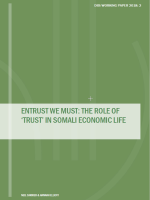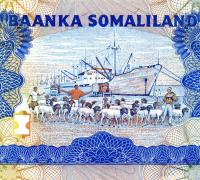In business we trust
In many economies across the world, business operates partly outside formal state regulation. The concept of ‘trust’ can help us understand the social underpinning of business in such economies. Trust is particularly important in the provision of credit, which is a main driver of informal economies. But as the authors of this new working paper argue, trust is not a prerequisite for acts of trusting in business. Even people who trust in their partners in business do not fully trust their partners, and deals can be entered without trust. Doing this serves to generate trust in further dealings, even though such acts of trusting do not eliminate deceit and mistrust.
These are some of the conclusions that Neil Carrier (University of Bristol) and Hannah Elliott (University of Copenhagen) draw in their working paper, Entrust we must. The role of ‘trust’ in Somali economic life. They base their conclusions on ethnographic work in Eastleigh, Nairobi, where Somali enterprise and capital investments drive a thriving, partly informal, economy. The Somali traders themselves talk much about trust, an important norm that creates moral impetus for acts of trusting.
This DIIS Working Paper is part of the GOVSEA PAPER SERIES (Governing Economic Hubs and Flows in Somali East Africa) edited by Tobias Hagmann and Finn Stepputat.


